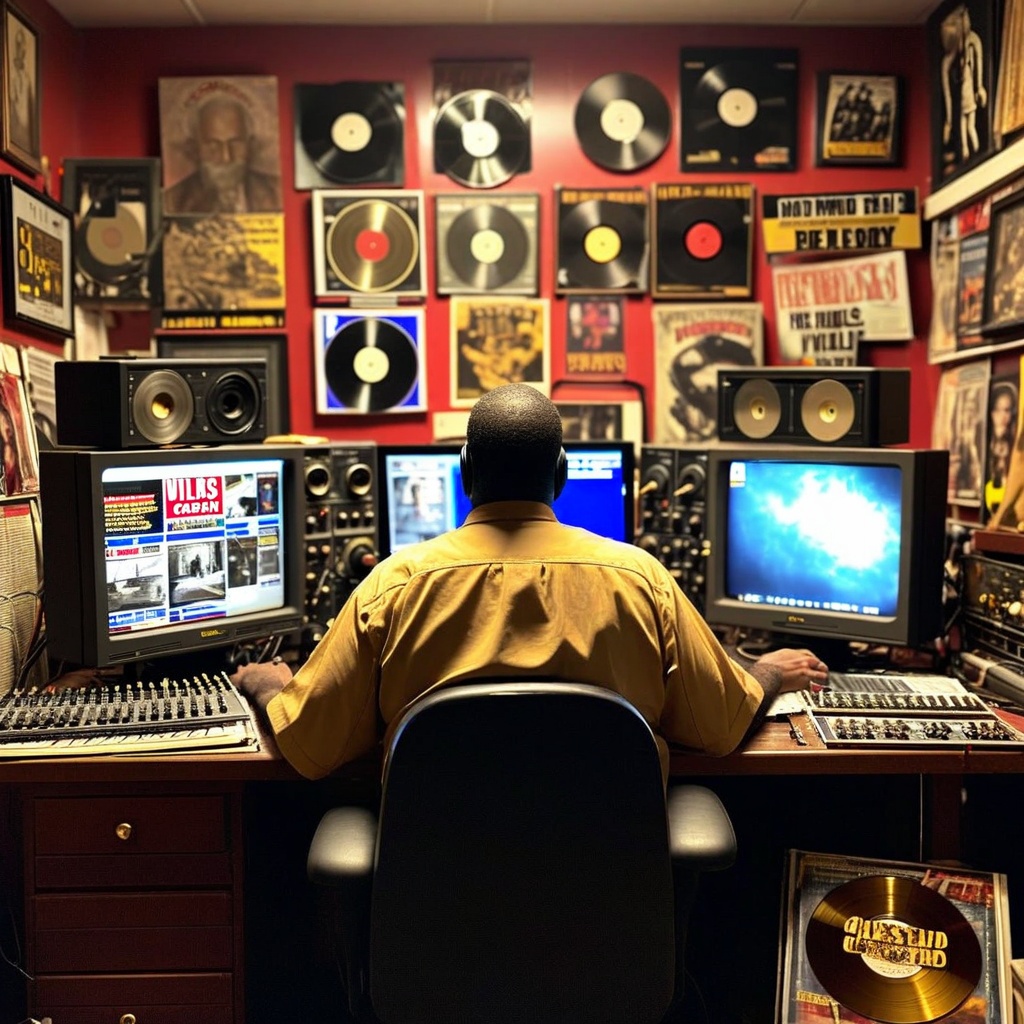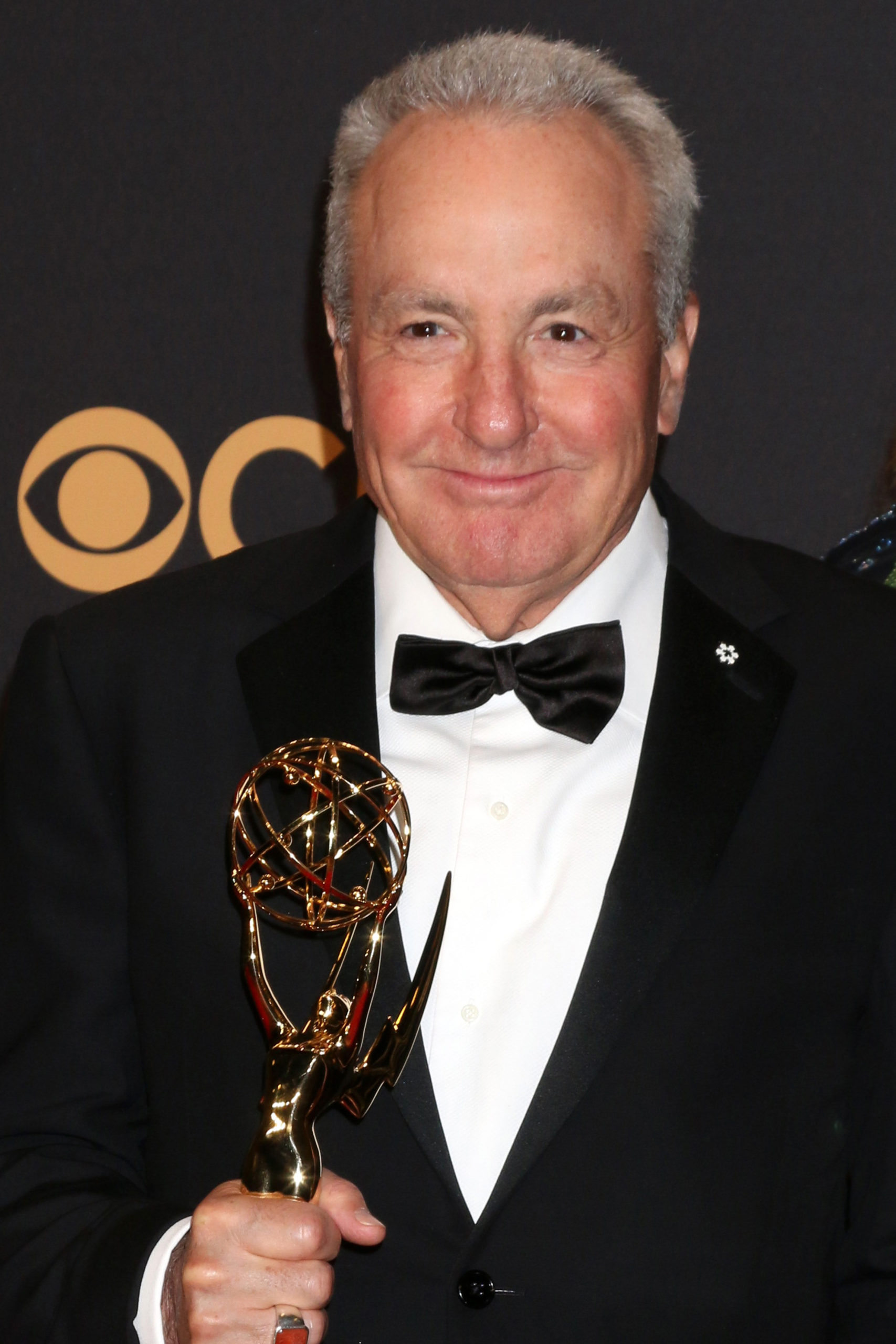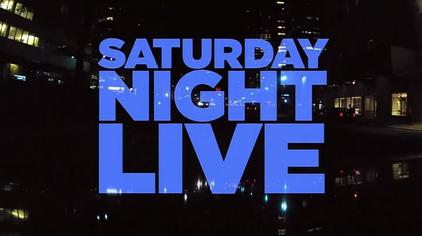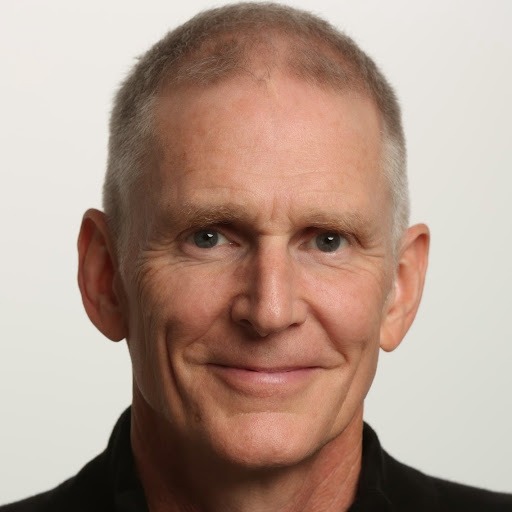
A lot of the buzz on radio’s social media pages over the last week or so has revolved around the many able leaders being named as the best PDs in the U.S. by format. Barrett Media is handing out these awards, and I’m happy to tell you I know and have worked with many of these fine, deserving people over the years. In many cases, I have had the opportunity to watch them grow and achieve greatness. It is truly gratifying to see them earn their just rewards.
It is always important to be recognized for your work. In their social media posts, I’m reading some very proud emotions from these honorees. And for good reason. These accolades are coming at an inflection point for radio programmers, many of whose positions have been eliminated in recent years, recent months, and even recent days.
It has become the norm for PDs to now handle multiple stations – in a cluster or even in the company. But ultimately, the best radio brands have been designed and constructed when it’s been one programmer overseeing one radio station – plain and simple.
Alas, that’s no longer the world in which we radio denizens live. While we old-timers may remember the way it was, those who have only been working in this business for a handful of years don’t recall it any other way.
But imagine what it would be like to program the same entertainment brand, not for ten years or even twenty – but the better part of 50 years, a half century overseeing and guiding the same product.
Of course, the only PD (OK, they’re called “showrunners” now) who can even possibly fit that description is none other than Lorne Michaels (pictured below) the overseer of Saturday Night Live.

Chances are, you’ve watched the show over the years, and perhaps have been a fan through SNL‘s many incarnations, especially given its rotating staff format. The show was responsible for launching the careers of scores of comic icons, while also enhancing the fortunes of hundreds of guest hosts and musicians who have graced the show’s stage.
But the one constant has been Lorne, the guy who conceived the show as a counter-culture version of entertainment television back in the ’70s. Over time, it has morphed into a mainstream success.
Many greats have come and gone over these past 50 years, but Michaels remains the backbone, the visionary, and the major domo of this television institution.
And recently, the New Yorker’s in-depth profile of the master, “Lorne Michaels Is The Real Star Of ‘Saturday Night Live'” brilliantly assembled and written by Susan Morrison tells the story of a funny guy who found his place in the industry by guiding and coaching talent while building an entertainment institution that to this day, captures attention, ratings, and buzz.
 To sustain an entertainment brand of this type for a decade would be an incredible accomplishment. To do it since Gerald Ford was President is beyond incredible. And Michaels continues to nurse SNL to this day, as it goes through its weekly routine of prep, panic, and ultimately, a live performance on Saturday nights on NBC.
To sustain an entertainment brand of this type for a decade would be an incredible accomplishment. To do it since Gerald Ford was President is beyond incredible. And Michaels continues to nurse SNL to this day, as it goes through its weekly routine of prep, panic, and ultimately, a live performance on Saturday nights on NBC.

Not surprisingly, the story was brought to my attention by another brilliant programmer, Jeff Rowe, now overseeing LAist (KPCC) in Los Angeles (pictured). Over the years, Jeff has been a standout PD, whether he was guiding the great WKTI in Milwaukee, later Vh1, and in the ’90s, the prime time network programming at the same network where Lorne Michaels has distinguished himself all these years – NBC.
Unfortunately, the story is behind the New Yorker’s paywall. But if you catch a special deal (like $1/month for a year), it might be worth your while to tune into this real-life tale of brilliant programming and coaching. I’ll give you the gist here.
Morrison’s story is detailed and fascinating, and as I read it a second time, a “baker’s dozen” of key lessons for us programmers jumped off the page at me.
- Every year isn’t an award winner. Michaels has convinced his
 bosses at NBC – many regimes have come and gone over the years – the show won’t have “championship seasons” every year. He compares SNL‘s ups and downs over the years to the same types of cycles that impact the Yankees or the Dow Jones Industrial Average. That, in fact, might be one of Michaels’ biggest accomplishments – the executives at the network believe in him and allow the show to fail or fall flat at times. He has taught them it always bounces back.
bosses at NBC – many regimes have come and gone over the years – the show won’t have “championship seasons” every year. He compares SNL‘s ups and downs over the years to the same types of cycles that impact the Yankees or the Dow Jones Industrial Average. That, in fact, might be one of Michaels’ biggest accomplishments – the executives at the network believe in him and allow the show to fail or fall flat at times. He has taught them it always bounces back. - He has learned you often have to play the nostalgia card while staying in the “middle lane” of humor. Either SNL‘s research team or Michaels’ instincts tell him the average viewer’s favorite casts, bits, and shows were aired when that person was in high school. He realizes there is an ebb and flow to hiring – and firing – cast members. Just like with music, everyone’s favorite “Not Ready For Prime Time Players” are the ones they grew up watching. The other lesson is your humor cannot be too far above the audience’s head. There was a 5-year period when Michaels left SNL over a dispute with the network. When he returned in the ’80s, Michaels was more committed to generating mainstream laughs, rather than being too hip for the room.
- He is something of an enigma to his teams over the years. Despite his longevity at the network and in his position, there’s an air of mystery about him – what he’s really thinking, how he critiques the show and his talent, how the week leading up to each show is tightly managed or allowed to organically

L-R: Larry Berger, Dave Hamilton flounder on its own. Morrison’s story is full of former cast members – now famous names – who tell vivid stories about Michaels’ odd management style. I’ve known a number of radio programmers who wallowed in this same netherworld of emotions – WPLJ’s Larry Berger and KQRS’s Dave Hamilton (both pictured above) come to mind for me – two PDs who had a very ritualistic way of doing things while keeping their distance from the airstaff. There’s not much of a margin between having a certain sense of intrigue versus manipulating staffers – the greats can walk that line. By the way, both built their long-lasting brands while their stations were owned by ABC Radio.
- He has perfected the difficult balancing act of management. For radio PDs, the game is about the airstaff on the one hand and upper management on the other. On SNL, it’s actually a triple challenge – the regular cast, network executives, and each show’s guest star. That last sphere is critical, dealing with agents, handlers, and the celebrities themselves – their style, goals, talent, and willingness to take risks. I’ve seen so many radio PDs fail because they couldn’t manage up or down – or sideways. To last in this business, you have to become deft at all three.
- He knows when to be brutally honest and make the tough calls. Morrison says the critical moment for each SNL episode is that fine line between the dress rehearsal and the actual live show. It’s when Michaels is “on knifepoint,” as he calls it. He may waffle, obfuscate, and duck the hard questions during the week, but at this special “go time,” SNL‘s iconic programmer “displays his superpowers” as Morrison refers to it. Many radio programmers are good at one or the other – being dictatorial on the one hand, while being wishy-washy on the other. Great PDs know the moments when they have to shift for the good of the brand – and the team.
- He believes in the power of a live show. While the only other truly “in the moment” events on linear television are sporting events and news shows, SNL stands out as the anomaly. And
 Michaels has great reverence for that power: “The idea that I could do a show in which the audience would see it at the same time was thrilling.” It is lamentable and a strategic error that more radio broadcasters haven’t made this connection.
Michaels has great reverence for that power: “The idea that I could do a show in which the audience would see it at the same time was thrilling.” It is lamentable and a strategic error that more radio broadcasters haven’t made this connection. - He knows the types of people he relishes on his team. One of the richest parts of the New Yorker story is the clarity with which Michaels describes his ideal cast members and the type of humor they needed to generate. Terms like “enlightened amateurs,” “people you could drive cross-country with and not kill,” and a show with “hard laughs,” the ones that remind “you of a happier time in your life.”
- He had a vision from the get-go. Morrison talks about a three-page memo wrote his NBC bosses in 1975, just a handful of months before the show launched. It is loaded with the specifics that have characterized SNL since its beginnings. Much of it typifies Michaels’ ability to “manage up,” something he obviously does to this day. But along the way, he recognizes the capabilities of his staff and star guests, giving them permission to take risks. It starts and stops with “the vision thing,” as Bush 41 characterized it. Too many radio PDs are merely producing a format – not a true, colorized, detailed version of what the brand should be and who it connects with.
- He believes in benchmarks – great ones. Some have made the cut and endure – especially “Weekend Update,” a feature Michaels mapped out on Day One. Others have come and gone over time, especially the ones associated with specific cast members.
- He accepted that staff turnover isn’t just OK, it’s part of “the natural order of things.” The defections started with original cast member and perhaps the face of SNL jumping to a movie career. Morrison explains Michaels never put himself in position of having to talk Chevy Chase out of the decision to leave or to offer him a better deal. He realized a revolving cast could be a positive, a way to always bring new faces to the show. This is something many radio PDs (and their managers) could learn from, but it sure helps to have a bench – just in case.
- He appreciates the importance of staff chemistry. Morrison’s story details how Michaels shifted the show’s humor to be more in-sync with changing times. As he explained, it was
 critical to be aware of “when the music changed.” Michaels believes that as old cast members depart and new ones sign on, there has to be key “overlap” between these times to help newcomers adjust and transition. Like a great morning show, it’s about the team chemistry, something the audience can smell a mile away.
critical to be aware of “when the music changed.” Michaels believes that as old cast members depart and new ones sign on, there has to be key “overlap” between these times to help newcomers adjust and transition. Like a great morning show, it’s about the team chemistry, something the audience can smell a mile away. - He strongly believes anger isn’t funny. Over the years, Michaels has instructed his writing staff and cast members to avoid vitriol. While this element has worked (to degrees) in some forms of talk radio and what was once called “shock jock radio,” relying on funny – even idiotic – humor is always a better pathway to achieving ratings.
- He doesn’t allow himself to get too emotional. As Will Ferrell notes in the New Yorker story, Michaels doesn’t allow himself (or the show) to get too high or too low, realizing success is over a longer haul, a marathon and not a sprint. I’ve watched too many radio PDs get full of themselves, thanks to a really great book, and too many management teams unload a programmer who “got stupid overnight.” As Ferrell points out, “Lorne knows that it’s a long season.”
Thirteen takeaways from one magazine article. (Actually, there could have been more).
This story reads like a programmer’s primer, written about the Obi Wan Kenobi (a character Michaels is compared to in the New Yorker story) of programming longevity, greatness, and of course, much accumulated wisdom. Yes, it’s about a television show, but this New Yorker story is truly a learning tool for anyone programming a product designed to reach an audience while providing a dependable vehicle for advertisers.
Like a radio station.
While not mentioned in the New Yorker story, SNL is being consumed much differently today than it was when Michaels’ assembled that original cast comprised of Chase, Belushi, Aykroyd, Curtin, Radner, Morris, and Newman. Today, young people, in particular, watch the show in segments, thanks to SNL bits available online in an on-demand format. It is yet another way how the show has adjusted to the times and audience shifts.
Sadly, radio’s long-time reputation for training new generations of programmers has been all but lost in an environment that favors expediency and cost-savings over excellence. Moving forward, it will be even more difficult for radio broadcasters to build brands like they did in the past. Neither the discipline nor the dollars are there anymore.

Some may say the root cause has more to do with digital disruption and the exponential growth of media options. While those are major factors to be sure, I would submit the industry, by and large, would rather not invest the training, the time, and the investment necessary to construct brands built to last like it did “back in the day.” For some reason, core branding is thought to lack the ROI necessary to justify the time or the expense of designing, executing, and sustaining a KGO, a WPLJ, or a KMET.
And that may be less of a “radio thing” and more common to legacy media brands – including the original television and cable networks – now struggling to remain competitive with the torrent of content available at the touch of a button, a mouse click, or the swipe of a screen. CNN’s current travails support the point that strategy has been replaced by throwing spaghetti at the wall and hoping some sticks.
Still, Lorne Michaels’ story is a valuable one. It is a reminder of what could still be done with great vision, support, and a modicum of patience.
The potential is always there.
- “My Favorite Decade Of Music Is The __’s” - June 5, 2025
- Who’s Got It Better? Talent In Commercial Radio vs. Talent in Christian Music Radio - June 4, 2025
- It’s The Christian (Radio) Thing To Do - June 3, 2025




Hi Fred,
Since SNL was the topic today I thought I’d share this if you hadn’t seen it yet because you can’t talk SNL with talking about the music!
Questlove has a documentary on tonight on NBC and streaming on Peacock starting tomorrow on 50 years of SNL’s Music!
Here’s a mix he edited together to promote it:
https://youtu.be/vDxYQd51Xuk?si=RlFE8qYn6hK7Lq9n
Thanks again for all the CES Vegas fun!
Bob, thank you – I have seen it. PURE GENIUS. It may end up in blog post sooon. Great to have you along for the ride in Vegas!
Fred absolutely and of course Lorne is a Canadian (graduated from Forest Hill Collegiate, as did my daughters in Toronto).
Indeed he is, anothe true programming genius from “the Great White North.’
Point #8 resonates with me, as I just finished installing and creating a Rhythmic AC format for one of KRKE’s sister stations in Albuquerque.
My old friend Jhani Kaye once said that “programmers can hear the station in their head from the start, and the rest is making what’s on the air match that.” I’m doing the same thing with the new format … programming a “texture” rather than a format. (At least that’s what the station owner calls it.)
So 100% yes on that entire point, Fred.
You can’t always describe “vibe,” K.M. but great PDs know when they hear it (or don’t).
I read this article and he’s a bit of a control freak but also a visionary. The thing I enjoyed the most was the section of the article about the dress rehearsal that is done right before the show is broadcast. That is where the dish is put together, in his mind. That is what I came up with.
Interesting analogy to programming a radio station. I’ve never been in management but can think of the PDs who spent time with me as one of the weekend guys doing an air shift (for the fun of it). Some folks (most actually) were hands off, but others were inspirational. Time, temperature, name of artist and a tidbit about the song gives the listener a lot of info in just a few seconds (it was an oldies station, remember those?). Never will forget that talk.
I also think back to the station’s I listened to growing and it still sticks with me (thinking WLS/WCFL days) and the image they created in my mind. Still there today.
Your/our lament…the loss of “training new generations of programmers”…a huge setback for reeling radio. Remember the joy of our 80s, 90s, 2000s Mid-West Family annual sales conclaves, six markets meeting at Wisconsin Dells. Sales people swapping ideas, learning from the likes of Lytle, Corbett, Gifford, McKay, Doyle. Celebrating our top billers and 5-10-15-20-25 year employee anniversaries.
Across the hallway, our Programmers Conference convenes, a timeout for sharing and inspiration and momentum before we hit the streets and airwaves. Believe me, our weekend, LIVE part time announcers could knock the socks off many of today’s weekday full timers. No contest! The times, though, are a-changin’.
OK, Jerry – I’ll say what a lot of people are thinking. Great PDs ARE control freaks. They have a vision and the only way to get the “cast” to align around it and support it is to exert authority. Thanks for the comment.
You’ll get no argument from me.
LOVE today’s blog. The most creative part was how you sucked me in with the headline. I too study Lorne. Looking forward to the 50th Doc.
Indeed! A lot for us to steal there. Thanks for this, Mike.